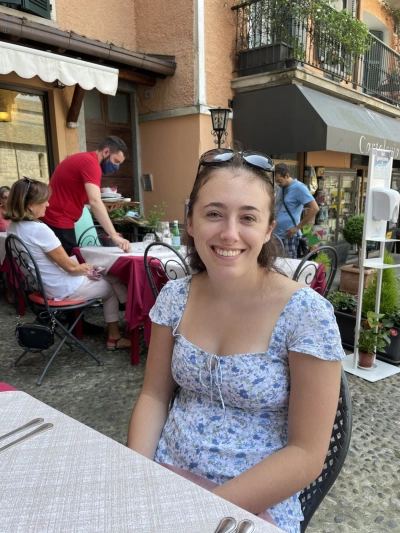I grew up playing capture the flag on the heathland with my friends, walking my family’s dog by the Sandpits, falling into the River Bourne at the Wetlands (although this wasn’t voluntary), running away from a hornets' nest that lay lurking in the undergrowth by my house, building dens and hiding in them as it poured with rain.
And much more.
In the summer COVID-19 lockdown, the Common offered a refuge for me and many others. Whilst the rest of the world plunged into chaos, Horsell Common came alive. Part of me misses those days–my friends and I used to go on bike rides, stop for lunches in McLarens Park, and the sun would shine down on us.
In the winter lockdown, on 24 January 2021, heavy snow fell - I have not seen snow like that since my early childhood. Those precious hours on the Common, made up of throwing snowballs, laughing, and watching my dog bound through the heather, hold a special place in my heart. They brought light into a very dark time.
The Common has been important for generations. Whilst it is no longer a place to collect firewood or graze livestock, without it, Horsell would be a very different place; I cannot imagine looking out of my window and the Common not being there.
My father grew up on the Common, just like I have. Stories of his childhood encouraged me to develop a fascination and love for nature myself. Without his passion and knowledge of the Common, I do not think I would hold it so close to my heart.
“Horsell Common was where I spent most of my time as a child. When I wasn’t at school, or eating, or pretending to do homework, I was out here - on my bike and scooting around these slopes, building dens and destroying other people’s dens, and generally getting up to no good. Doing what kids should be doing more of, maybe.” - Alistair Finn
This is why protecting pockets of nature such as Horsell Common is so important; future generations need them to understand, respect, and love the natural world.
Today, now more than ever, a fascination with Nature is needed in young people.

Amelia Finn
I grew up playing capture the flag on the heathland with my friends, walking my family’s dog by the Sandpits, falling into the River Bourne at the Wetlands (although this wasn’t voluntary), running away from a hornets' nest that lay lurking in the undergrowth by my house, building dens and hiding in them as it poured with rain.
And much more.
In the summer COVID-19 lockdown, the Common offered a refuge for me and many others. Whilst the rest of the world plunged into chaos, Horsell Common came alive. Part of me misses those days–my friends and I used to go on bike rides, stop for lunches in McLarens Park, and the sun would shine down on us.
In the winter lockdown, on 24 January 2021, heavy snow fell - I have not seen snow like that since my early childhood. Those precious hours on the Common, made up of throwing snowballs, laughing, and watching my dog bound through the heather, hold a special place in my heart. They brought light into a very dark time.
The Common has been important for generations. Whilst it is no longer a place to collect firewood or graze livestock, without it, Horsell would be a very different place; I cannot imagine looking out of my window and the Common not being there.
My father grew up on the Common, just like I have. Stories of his childhood encouraged me to develop a fascination and love for nature myself. Without his passion and knowledge of the Common, I do not think I would hold it so close to my heart.
“Horsell Common was where I spent most of my time as a child. When I wasn’t at school, or eating, or pretending to do homework, I was out here - on my bike and scooting around these slopes, building dens and destroying other people’s dens, and generally getting up to no good. Doing what kids should be doing more of, maybe.” - Alistair Finn
This is why protecting pockets of nature such as Horsell Common is so important; future generations need them to understand, respect, and love the natural world.
Today, now more than ever, a fascination with Nature is needed in young people.
You might like...

It started in South Africa
For ecologist/ornithologist and Birdlife Tasmania Convenor Dr Karen Dick, her love of nature comes from her South African childhood, a mother who rehabilitated wildlife and an unexpected encounter with the incredible secretarybird.

International River Grading System
The International River Grading System has been designed to provide an indication of the degree of difficulty for paddling of a rapid and/or river.

What is Kuno?
Kuno is the nature platform for life on Earth. A two-way platform of contributors and users, Kuno is created by us, for us. Kuno's mission is to kindle the loving bond between people and Earth to ensure a future where both thrive together.

An irreplaceable connection to place
I really enjoy watching it all happen. Just slowly, observing the cycles. I really notice the bird life, because that comes to your door. Then, there's a lot of marine life. It's a big part of every day, reflects composer and guitarist Julius Schwing, on his connection to Nature and a childhood spent "amongst it all" on Bruny Island.
Newsletter
Sign up to keep in touch with articles, updates, events or news from Kuno, your platform for nature
